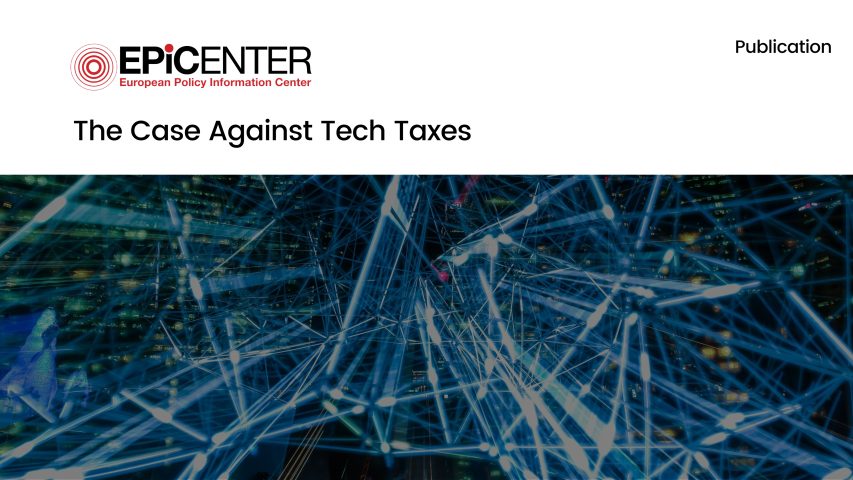The Case Against Tech Taxes

The Case Against Tech Taxes
26 June 2019
This paper explains why additional taxes on the turnover of companies with a large digital presence would be disproportionate, discriminatory and damage the European economy. They would further complicate the tax system for no obvious benefit, but substantial costs.
The European Commission has proposed a new set of EU-wide taxes on the activities of digital companies. In the meantime, several national governments have announced plans for their own taxes targeting the tech sector.
This paper reviews the Commission’s proposals and the state of play in four individual countries – France, the UK, Italy and Spain – drawing on the local knowledge of think tanks in each case.
These initiatives are based on the presumption that the tech sector does not pay its ‘fair share’ of tax. The justification for this claim is flimsy. Indeed, many advocates of a tech tax have resorted to what could best be described as ‘policy-based evidence-making’.
In reality, the effective tax rates paid by traditional businesses are often lower than those paid by digital companies. Where digital companies do pay less tax, this is usually for good economic reasons, or a result of tax breaks that governments themselves have promoted.
Taxes are ultimately paid by people, not companies, which are no more than legal structures and cannot bear the economic cost of taxes themselves. Turnover taxes have particularly large deadweight costs, are more likely to be passed on to consumers, are a major deterrent to investment, and can lead to very high effective tax rates when expressed as a percentage of profits.
In short, the proposals for digital services taxes appear to be driven more by politics than by a proper assessment of the economic and fiscal implications. It would make far more sense to reduce existing distortions in the tax system instead of adding new ones.
Politicians should also seek to correct public misunderstandings about the economic burden of taxation, instead of reinforcing and exploiting them for short-term electoral gain.
Download or share this publication
View the PDF
EPICENTER publications and contributions from our member think tanks are designed to promote the discussion of economic issues and the role of markets in solving economic and social problems. As with all EPICENTER publications, the views expressed here are those of the author and not EPICENTER or its member think tanks (which have no corporate view).



